Most people don’t think they can compost meat because they’re told not to do it, but is that true? Can you compost meat?
There are a number of dangers and reasons not to compost meat. However, if you are willing to put in the effort, then you can compost meat.
This article will cover the dangers of composting meat and bones, and how to compost meat.
- Related Article: How Compost Works
Can You Compost Meat?
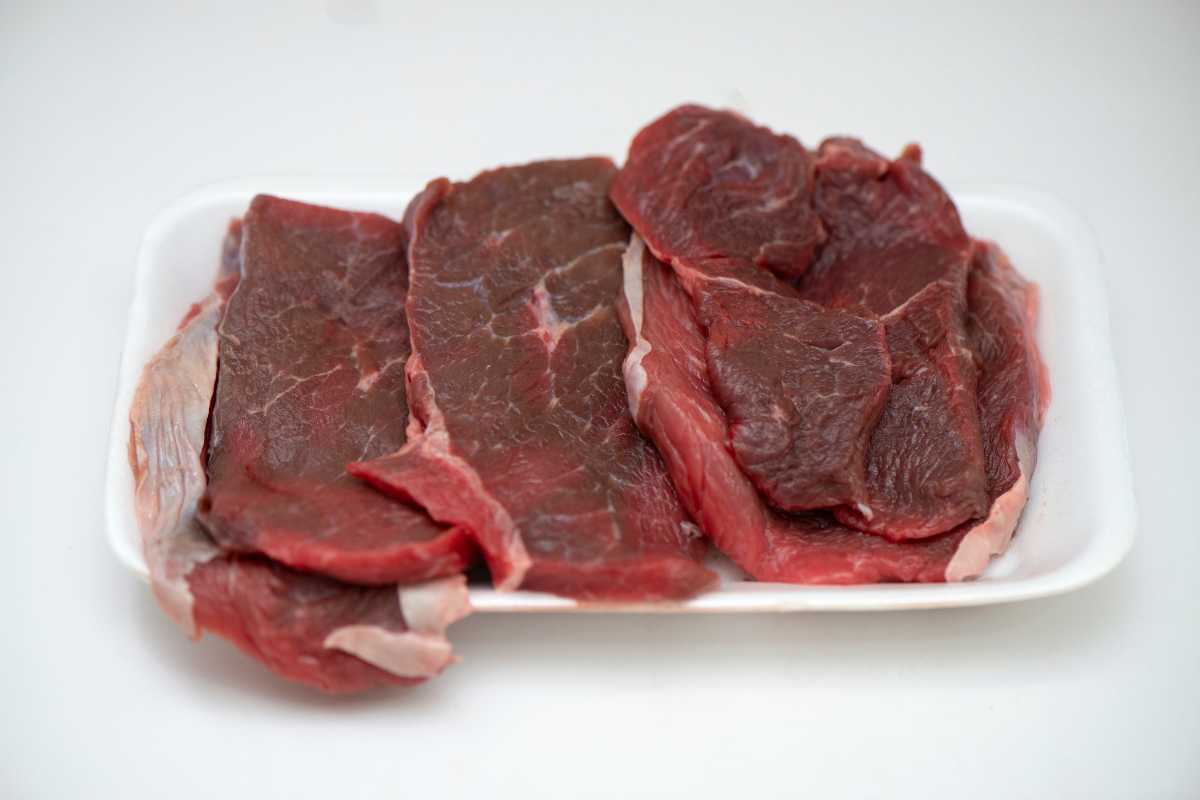
The answer to this question will depend entirely on how you compost. While many traditional methods are not suitable for composting meat, newer composting systems will allow you to successfully compost meat products.
The main reasons you should not compost meat using traditional composting methods are that meat will attract scavengers, it can harbor harmful bacteria and pathogens, and it will smell unpleasant when decomposing.
If you use sealed composting systems, these issues can be avoided, but if you are using an open-air composter, stay away from composting any meat.
Dangers of Composting Meat
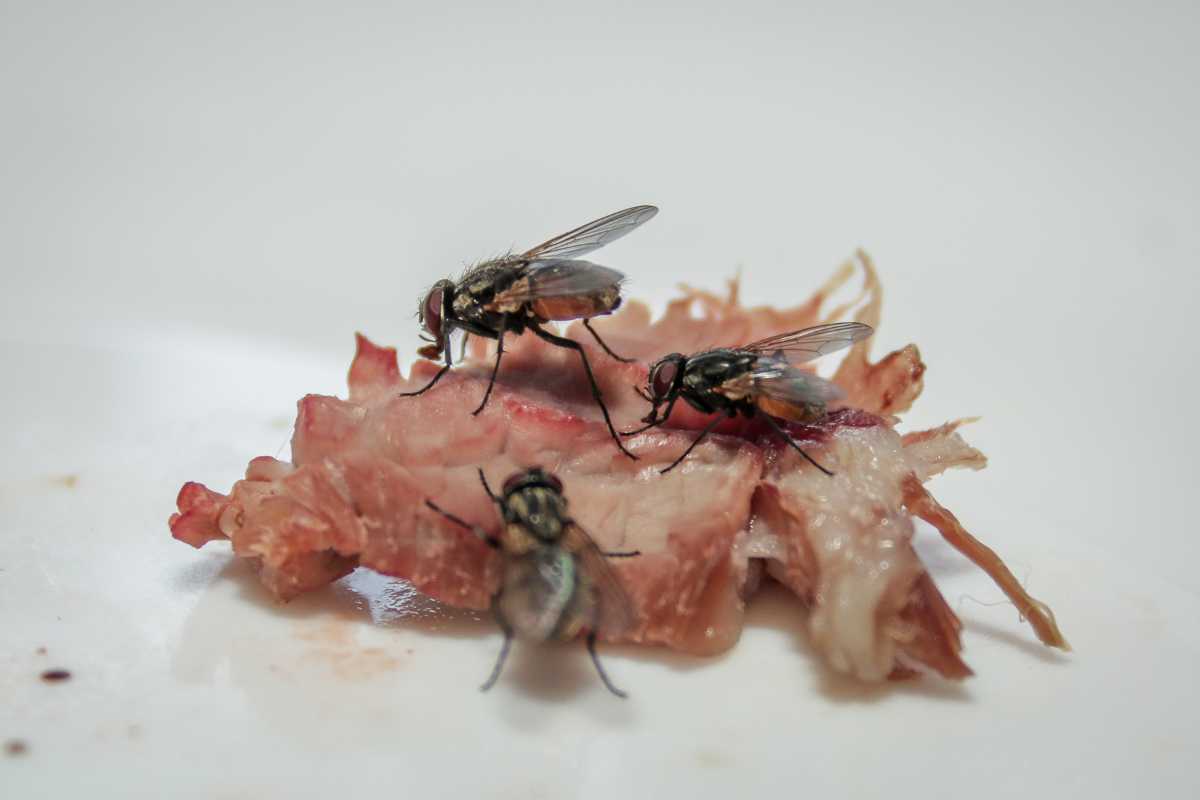
Meat can attract many pests and scavengers – like rats. You don’t want them to set up shop in your garden. This is one of the main reasons that you should avoid composting meat in an open-air composter.
Both wild animals and household pets can be attracted to the potential foul odors and risk spreading any pathogens that are on the meat scraps.
Raw meat in compost piles can harbor bacteria such as Salmonella, Staphylococcus, Listeria, Yersinia, and E. coli – the latter of which has dangerous bacteria that can remain active for up to two years.
While the risk of E. coli is relatively low, you don’t want to risk using contaminated compost to grow vegetables.
Can You Compost Bones?
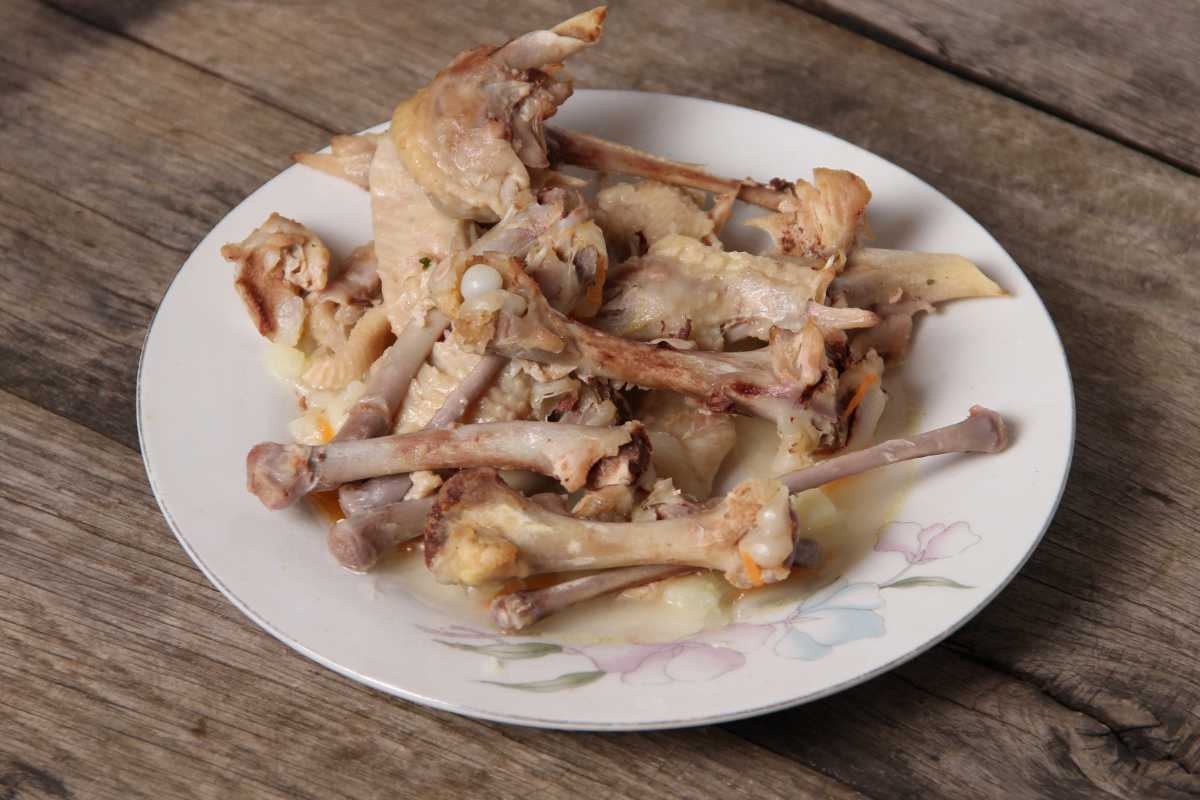
When looking into natural fertilizers, you will undoubtedly come across a product called bone meal, so it’s natural to assume that composting bones is absolutely fine. Even though bone is an organic material, this is not exactly true.
- Learn more about different types of fertilizers
There are a few problems when it comes to trying to compost bones.
The first problem when composting bones comes from the bits of meat that still may be attached on the bone. The meat scraps can attract pests and scavengers.
Another problem is that the bones are very dense, so it will take a long time to decompose. You’ll need to pick out any bone pieces before using the other finished compost.
One option to aid in composting bones is to create your own bone meal.
Bone meal is ground bones, and as it has been ground into a powder, it will decompose faster. If you have the resources to grind down bones, you can add them to your open-air composter.
Some sources maintain that you can add bones as long as you have processed them first. One way of doing this is to boil them to make them softer and easier to break down.
Can You Compost Cooked Meat?
Composting cooked meat has a lot of the same issues as composting raw meat. It will smell bad and attract pests.
Nevertheless, a few composting systems are on the market that will allow you to compost cooked food scraps, including meat. In the section below, I have listed the methods that can successfully compost raw meat and cooked scraps.
If you are using an open-air composter, you should steer clear of composting anything cooked to keep away nosy pests.
Even if your composter has a lid, animals are wily, and they will be able to smell the food – which is enough to attract them into your garden.
How to Compost Meat
Meat and bones contain a lot of nitrogen, and they can be beneficial in adding nutrients to your soil. However, you will need to purchase a sealed composting system to compost these items successfully.
Meat and bones should never be put in a traditional compost pile, open-air composter, or tumble composter. You should also avoid adding meat and bones to a wormery.
Only put meat and bones in composters that have been specifically designed to deal with these items.
There are four composting systems available if you want to compost meat. Compared to traditional composting, they are rather expensive to buy, but they are worth it if you compost a lot of food waste and not much garden waste.
1. The Bokashi System
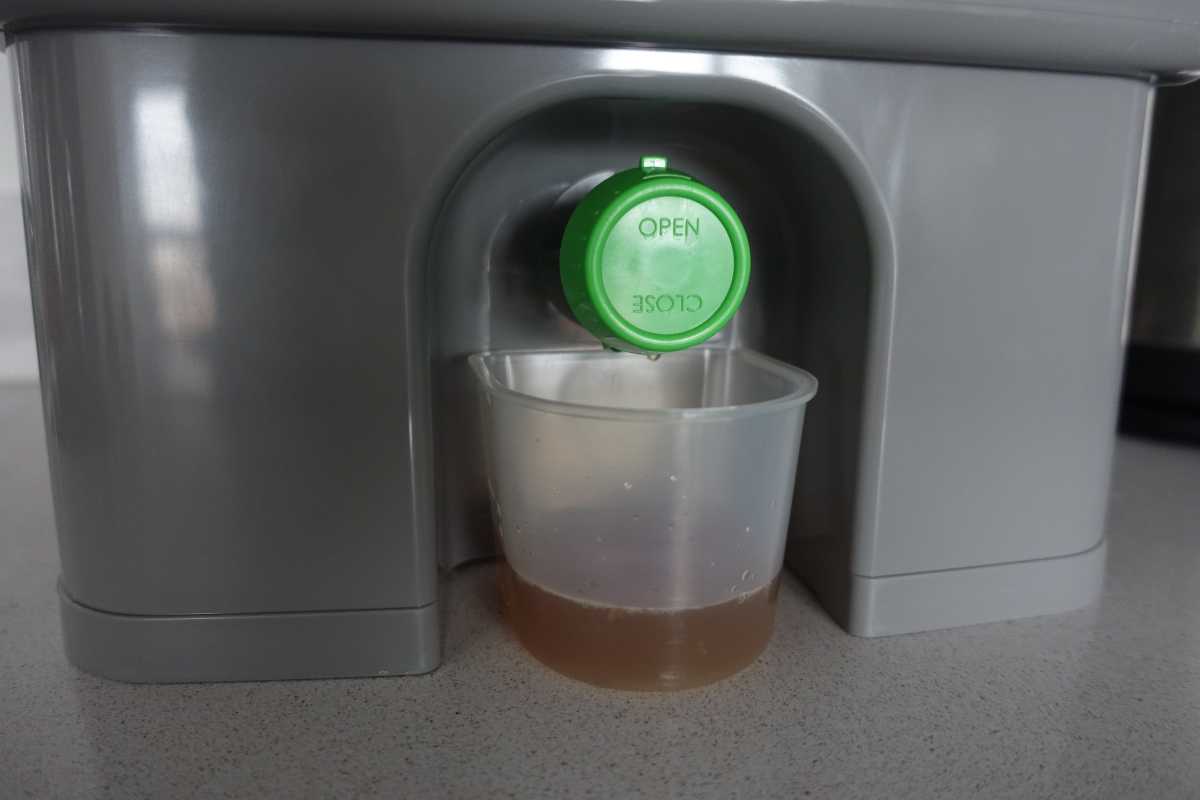
The Bokashi System composts food anaerobically and ferments the waste to kill any germs and bacteria. Because it is completely sealed, then any problems with smell or vermin are avoided.
After the fermentation process, you will need to bury the waste, so it is sometimes utilized in combination with the second system on this list.
2. The Compot
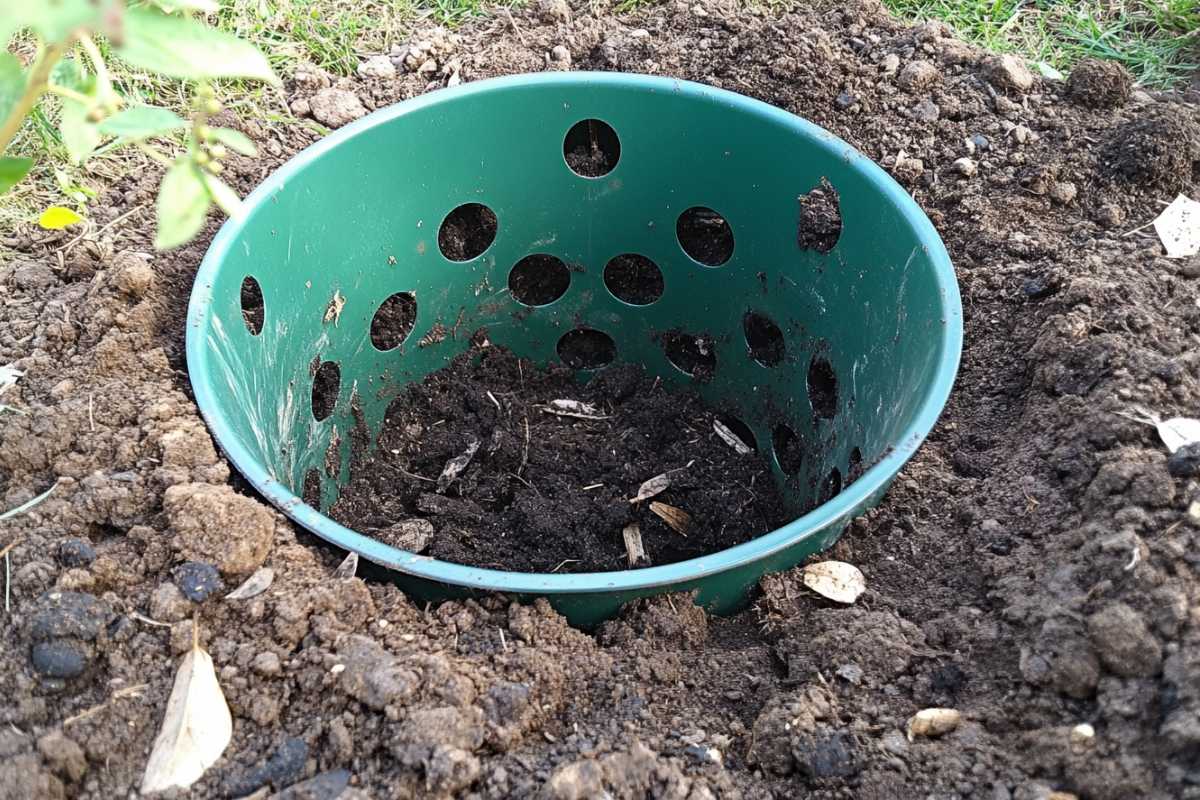
The Compot uses the combination composting method where you bury the waste directly in the ground.
Like the Bokashi System, the food scraps are kept away from scavengers, and you won’t have to worry about smells.
3. Hotbin Composter
Hotbin composting is also an anaerobic composting method. The hotbin composting system seals out oxygen that can be used to compost meat and bones.
It will lock in the smells and keep out pests. The heat also kills any pathogens that may be in the food.
4. Electric Composter
Electric composters can decompose any food that is not usually composted, including meat and bones.
They can break down materials in two hours or two weeks, depending on the composter you have and the type of food you’re composting.
An electric composter is the most expensive of the four systems, but it’s the fastest way of composting if you are composting small amounts of food.
Composting Meat Final Thoughts
There are some great benefits to composting meat to your homemade compost.
By composting meat, you can reduce the amount of waste that we throw away, and you can help prevent the spread of disease by keeping meat away from animals.
There are also environmental benefits to composting meat: you can reduce the amount that goes into landfill, and you can reuse the organic matter that is created during the composting process.
However, there are some risks involved with composting meat, so it may be better for an experienced composter than casual composters. But as long as you don’t add meat to an aerobic compost pile (with oxygen like open-air), you should be okay with scavengers.
To learn more about composting and ingredients, check these articles article:
- Composting in the Winter Months
- Can You Compost Crab Shells
- Can You Compost Paper Towels
- Can You Compost Dryer Sheets
Composting Meat FAQs
What happens if you compost meat?
If you put meat into your compost bin, you can expect to smell something very unpleasant. There are no regulations regarding what goes into a compost bin, so anything goes. There are other options though. You can bury the meat in a hole in the ground or place it in a sealed compost bin where animals won’t be able to get to it. Meat left out in the open will attract animals and other pests. A final option is to throw the meat away.
Can I compost meat and bones?
Yes, you can compost meat and bones. Make sure you remove any fat before adding the bones to your compost bin. Also, be sure to follow certain precautions to avoid attracting animals and other scavengers. You will want to bury the meat and bones in a hole in the dirt or place them in a sealed container.
Can you bury spoiled meat in your garden?
Yes, you can bury spoiled meat directly in your vegetable garden. Bury it 12 to 18 inches into the dirt. I would include other non-meat food scraps for variety. Make sure to cover everything up with soil before planting anything around it. This anaerobic method should create enough heat to kill off any harmful pathogens in the meat, while still providing nutrients to the soil.
How do you safely compost meat?
Safely compost meat by ensuring that the temperatures are high enough by using hot composting methods. This will help kill off harmful bacteria and pathogens in the meat during the decomposition process.
Can you compost meat in San Francisco?
Yes, you can compost meat in San Francisco. There are many different methods of composting meat including using a commercial compost bin, making a pit compost system, or simply burying the remains in your backyard. Using the city composting system with the green bins for compostable materials makes it really easy to compost food waste.



